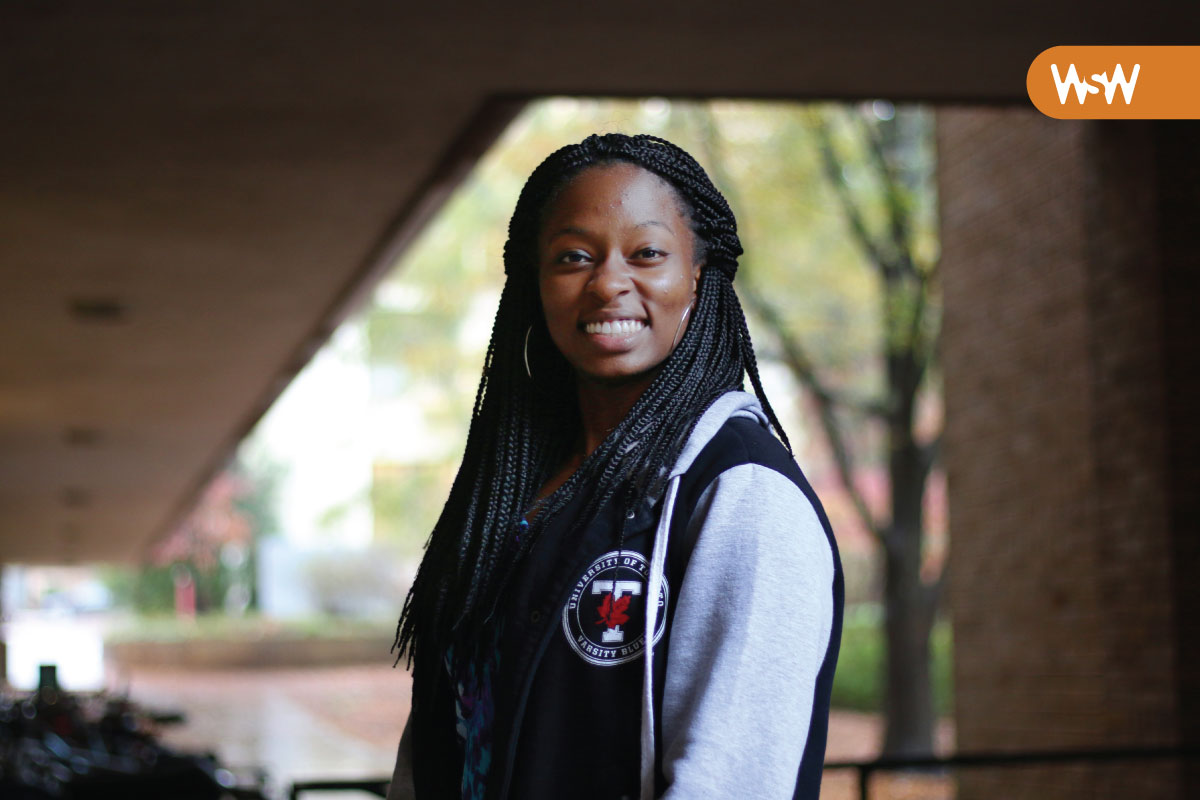When you were a child, what was your response to this question: “What do you want to be when you grow up?”
A doctor. My parents are doctors, and I’ve always seen them as superheroes — saving people’s lives every day through their work. Watching my parents dedicate their lives in the service of others inspired me from a very young age to do the same. Ultimately, I decided I could do this best through medicine.
RESEARCH IN 5 WORDS:
“Can music change your brain?”
Share the pivotal moment in your life that helped you choose your field of study.
I grew up on the beautiful island of St. Croix, and one Christmas, my piano studio decided to take a trip to an elder care home to share our holiday spirit through music. The home was quiet, filled only with the sound and movement of the nurses carrying trays of food in and out of the kitchen. The residents were almost as still as statues — half of them unaware of why they were there, the other half nearing sleep. It was clear to all of us who had walked in to the room that these once bright and spirited individuals were losing the battle against the deteriorating effects of age on the mind.
But as soon as the music started to play, there was a noticeable brightness in their faces, and they began to move around. It was almost like watching Disney’s “Beauty and the Beast,” when the characters come to life! When I started to play “Go Tell It on the Mountain,” they started to sing, bob their heads, and play air piano throughout the song. It was something in that melody — the recognition of the song — that seemed to transform them and temporarily reverse time. In that moment, I realized that science and art could be combined to provide healing and therapy.
Tell us about a time you encountered a tricky problem. How did you handle it and what did you learn from it?
When I was a sophomore, I was in a leadership position that required me to coordinate the planning of several social events for the year. For one event collaboration, there was some miscommunication about responsibilities. To handle the situation, I spoke with everyone involved and created a new action plan for the future. This taught me the importance of clear communication within a team, which is especially relevant when it comes to research where there is constant collaboration happening among scientists around the globe. To develop solutions to the world’s greatest challenges, we must have clear, efficient communication among everyone involved.
What are your passions outside of research?
Music, reading, running, and leadership through the Residence Hall Association. In fact, if I didn’t have a passion for music outside of science in high school, I might not have discovered my passion for understanding music’s effects on the brain in my research! So, in some ways, one’s outside passions allow you to take a step back and see the bigger picture in order to think of novel ways to approach your life’s work.



